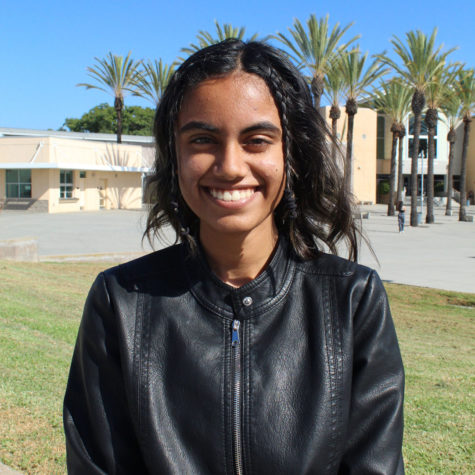Concussions affect different aspects of athletes lives beyond the field
October 8, 2021
Two weeks ago, Annabella Mosolgo (12) dove off the three-meter diving board, like she’s done the past three and a half years. She did it not knowing of the harsh impact about to follow, without realizing that she would hit her head as she entered the water and soon after, temporarily lose the ability to read when the dizziness rendered words incomprehensible.
Mosolgo didn’t realize she had a concussion until her symptoms escalated.
“I had some headaches a couple of days after and then I came to school on Monday, and the headaches were just so bad that I couldn’t concentrate on anything,” she said. “I couldn’t read, I was just so dizzy and I was having severe headaches. So, then I went to the doctor.”
Athletic trainer Christina Scherr, who’s encountered dozens of concussions in student athletes, says there isn’t really a diagnostic tool to definitively say if one has a concussion or not.
“It’s not like a broken bone where you can take an X-Ray or an MRI or a CT scan,” Scherr said. “It’s more about finding out the history of what’s going on. There are quite a few symptoms of concussions. [A concussion] is a combination of those symptoms and what we call a mechanism, or an event that caused a potential head injury.”
According to California State Law, merely one symptom, which could include headaches, neck pain, nausea, dizziness, fatigue, etc., and one mechanism necessitates a doctor visit and clearance.
Mosolgo took two days off school per the doctor’s orders. Once she came back, she said her teachers were understanding, letting her complete her missing assignments at her own pace.
“I made an agenda of all the stuff I needed to do,” Mosolgo said. “I just balanced it out so that I wouldn’t have to do too much at one time so I wouldn’t go back too strong because my head was hurting again. So, I just did [the work] in little increments per day.”
Along with the throbbing pain from the headaches, the concussion also caused fatigue.
“Normally, my dad and I go for walks with my dog up and down the street,” she said. “It was in a cul-de-sac, and I struggled to even go halfway, I just got tired.”
Mosolgo is no stranger to injuries. As a gymnast for 10 years, she got her first injury at 7 years old. Later when Mosolgo switched to diving, she suffered a back injury and recovered last October. She’s not a stranger to concussions either, having gotten one slightly less severe due to diving her freshman year.
It took a week for Mosolgo’s headaches to cease entirely, diminishing in severity every passing day. Fortunately, she is back diving now, the injury inspiring her to help others in her situation.
“The recovery process, with going to physical therapy, has led me to the path that I want to pursue: sports medicine in college,” Mosolgo said.
Similarly, quarterback Rick Garcia (11) didn’t realize he had gotten a concussion when he blocked another player, colliding heads in the process, Sept. 10.
“I kept on playing afterwards, and then I kind of realized that I couldn’t really see or stand straight,” Garcia said. “I got really dizzy, so I realized something was going on. I went to see the athletic trainer, and I ended up having a concussion.”
Despite his concussion, Garcia didn’t take a single day off of school. It was hard, he said, especially dealing with the headaches and minimized attention span.
“I balanced school by just pushing through it,” Garcia said. “There were definitely days where I didn’t want to be here. But I felt like if I took time off, I would get behind in everything. I didn’t want to get behind.”
Now, Garcia has been taking it easy to focus on his health and recovery in order to play in tonight’s Homecoming game.
“I really plan on going there [football game],” Garcia said. “I know the team plans on having this as their biggest game, so hopefully I can get out there at the game.”


